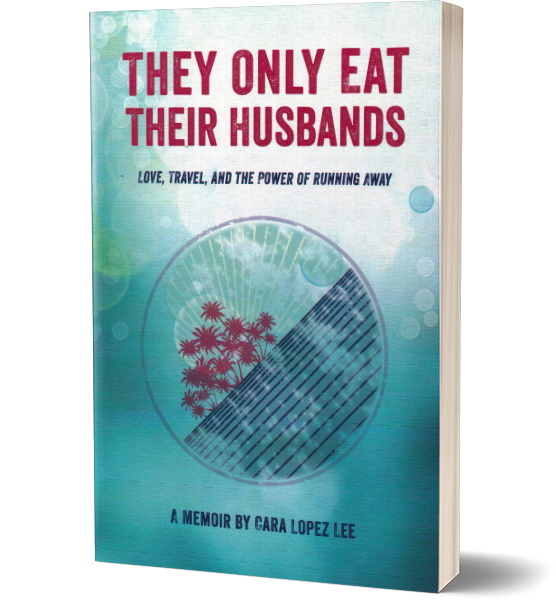 I think about death a lot. That’s not to say I’m obsessed or depressed. It’s just one of the two weirdest things I’ve ever been aware of: the inevitability of my demise, of the demise of all of us. The other weirdest thing: that I’m here in the first place, that we’re all here. As a storyteller, how can I not be attracted to questions of existence and oblivion? Sure, I believe in a God, a spiritual universe, and an afterlife. But that’s faith. I have no scientific proof. The only things I’m sure of are the same things all living humans are sure of: there was a time I was not alive, now I am, someday I won’t be again.
I think about death a lot. That’s not to say I’m obsessed or depressed. It’s just one of the two weirdest things I’ve ever been aware of: the inevitability of my demise, of the demise of all of us. The other weirdest thing: that I’m here in the first place, that we’re all here. As a storyteller, how can I not be attracted to questions of existence and oblivion? Sure, I believe in a God, a spiritual universe, and an afterlife. But that’s faith. I have no scientific proof. The only things I’m sure of are the same things all living humans are sure of: there was a time I was not alive, now I am, someday I won’t be again.
I recently heard an interview on Colorado Public Radio with Rabbi Zalman Schachter-Shalomi and author Sara Davidson, about The December Project, her book about the aging Rabbi’s preparations for death. We’re talking some intense preparations. Let’s call them “death practice.” He practiced drawing his last breath, practiced choosing his final moment, even got into a coffin so he could practice being dead. He also did some things you might typically expect: reviewed his life, forgave others, forgave himself. His purpose was to prepare mindfully for the end of life, or as he put it: “to not freak out about death.”
Davidson explained that Death Cafés have become popular for similar reasons. DeathCafé.com describes that new movement this way: “At a Death Cafe people, often strangers, gather to eat cake, drink tea and discuss death. Our objective is ‘to increase awareness of death with a view to helping people make the most of their (finite) lives’.” That might be more thinking about death than I’m interested in, though I’ll admit now I’m curious.
Rabbi Zalman died a week and a half ago at 89. He went “peacefully” according to the Boulder Daily Camera. Here’s the thing: we cannot know whether his experience of death was peaceful, only he can. It is the greatest of mysteries, and how can any writer resist a true mystery?
We can die surrounded by loved ones, but death itself? That is something that each of us must do alone. Will there be someone waiting to guide me? Maybe, but not anyone from here.
I have occasionally felt frustrated by the certainty of my own death: there are too many projects I want to accomplish that I know would take me well beyond a normal lifespan. I’ll never get to them all. That doesn’t freak me out, but it does bum me out.
On the other hand, I’m sometimes appalled by how much money, effort, and emotion our society spends to support our survival instinct, to the point of prolonging life well after the ability to live independently is gone. Don’t get me wrong: I’m all for finding cures and fixes for terminal diseases, dementia, and debilitating injury. It’s just that at some point I believe it’s worth making room for the idea that death is natural, even beneficial—a world in which nobody dies would be unsustainable.
On Independence Day this year, I went to a friend’s house on a hill with a panoramic view of some dozen fireworks shows along the Front Range. Something about all the colorful explosions rising above a vast, wakeful metropolis brought me back around to death. “In 150 years,” I thought, “all the people out there will be gone.”
And we know it. Guess that’s a third weird thing.
In spite of that, or maybe because of it, we bustle around with urgency, trying to survive or even make our mark. This urgency is not necessarily a bad thing. A friend of mine recently had a stroke, and although her recovery has been remarkable, she is struggling to regain many things—her sense of urgency among them. I didn’t realize, until she explained it, that our personal identities are tied up with our sense of urgency. What we address with urgency has a way of telling us what our priorities are, which dreams and needs and people are most important to us, what we value.
Still, part of me likes the idea of letting go of just a little bit of urgency, the sense that certain things must be attended to right away. This might be because I’m overworked, but I doubt it. Because I feel urgency even when I have no deadlines, no appointments, nobody waiting.
When my mom was dying, at one point she kept trying to climb out of bed and to tear off her clothes—though she had little strength. Was that what happens to urgency when it has nothing to apply itself to? Is it the survival instinct? Or something else? What was the point of that? Does there need to be one?
In the movie, Hannah and Her Sisters, Woody Allen’s character becomes obsessed with death to the point of suicidal depression. He is cured of his obsession while watching a Marx Brothers movie. Here’s what he says: “I mean, look at all the people up there on the screen. You know, they’re real funny, and, and what if the worst is true? What if there’s no God, and you only go around once and that’s it? Well, you know, don’t you want to be part of the experience?”
I can see that. That kind of acceptance doesn’t stop me from thinking about death, just changes the way I think about it. It leads me to gratitude for the preciousness of all experience, for everyone I’ve known, for the ability to be me. It also leads me to action: to embrace the urgency, to keep my communication clean, to keep trying to do the next right thing, to make sure the people I love always know it, and to make amends for my mistakes. It reminds me to prioritize and pursue my greatest dreams, so I have no regrets when the time comes for me to discover the great mystery.




